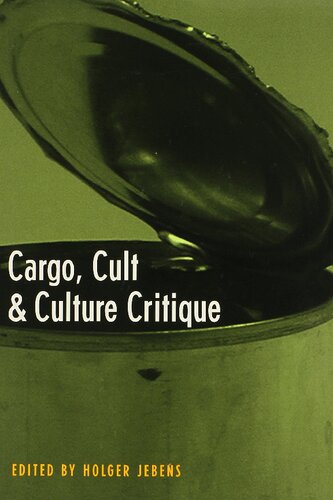

Most ebook files are in PDF format, so you can easily read them using various software such as Foxit Reader or directly on the Google Chrome browser.
Some ebook files are released by publishers in other formats such as .awz, .mobi, .epub, .fb2, etc. You may need to install specific software to read these formats on mobile/PC, such as Calibre.
Please read the tutorial at this link: https://ebookbell.com/faq
We offer FREE conversion to the popular formats you request; however, this may take some time. Therefore, right after payment, please email us, and we will try to provide the service as quickly as possible.
For some exceptional file formats or broken links (if any), please refrain from opening any disputes. Instead, email us first, and we will try to assist within a maximum of 6 hours.
EbookBell Team

5.0
68 reviewsCargo cults have long exerted a remarkable attraction on Westerners, and the last decade has seen the publication of much new work on the subject. This collection of original essays is based on fieldwork in Melanesia, Fiji, Australia, and Indonesia by scholars who are influential in the contemporary debate on cargo. Conceived as a reader for undergraduate and graduate courses, the volume offers an up-to-date view of the subject and the debates it arouses among contemporary anthropologists. Some contributors plead for the abolition of ""cargo"" because of its troublesome implications, but also because, in the authors' view, cargo cults do not exist as identifiable objects of study. Others argue that it is precisely this troublesome nature that makes the term a useful analytical tool that should be welcomed rather than rejected. By delineating and substantiating key issues and positions in this lively and ongoing debate, this volume underscores and refines the contemporary reevaluation of cargo cults. Scholars of the Pacific region and others interested in new religious movements should find this volume both enlightening and compelling.